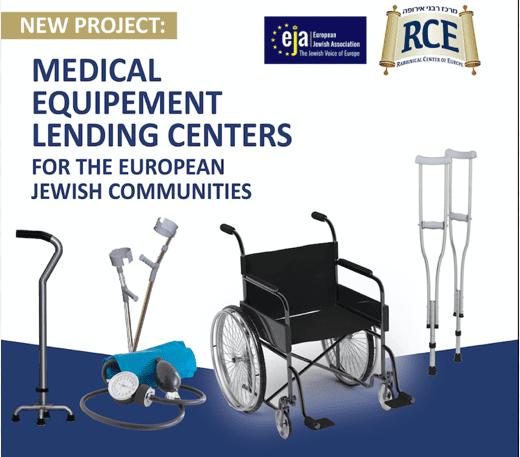The European Jewish Association and the Rabbinical Centre of Europe are delighted to announce a brand new project that we are rolling out across Europe, directly helping the sick and needy with the often expensive costs associated with securing much needed medical equipment.
Our brand new medical equipment lending centre means that the sick and immobile needn’t worry about buying wheelchairs, or expensive crutches walkers and the like.
We will provide them to communities on a need-by-need basis at no cost. When recuperation is over, the items simply get returned to the local community lending branch centre and passed to the next person that needs them.
This simple, effective project overseen by us but run at branch level by communities is open to everyone, but supplies are limited.
For more information on setting up a branch, or to apply for help. Please contact us at: info@ejassociatio.eu or databse@rce.eu.com















